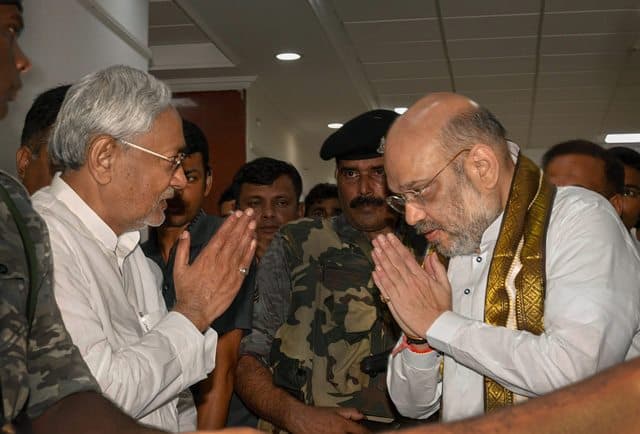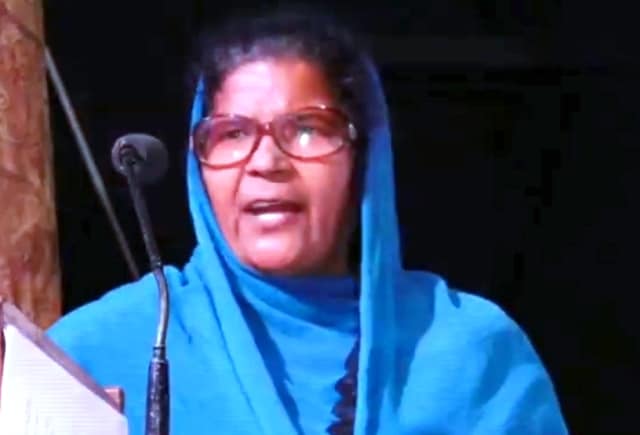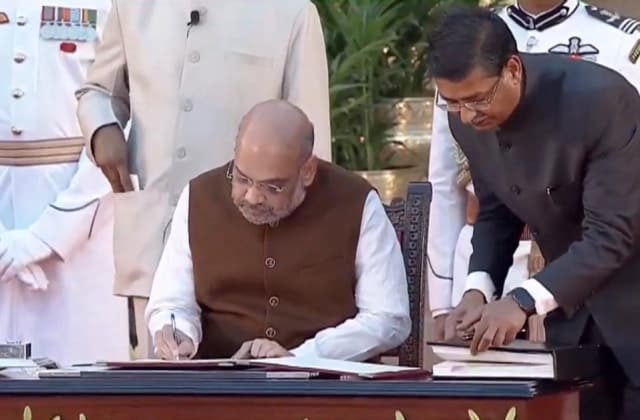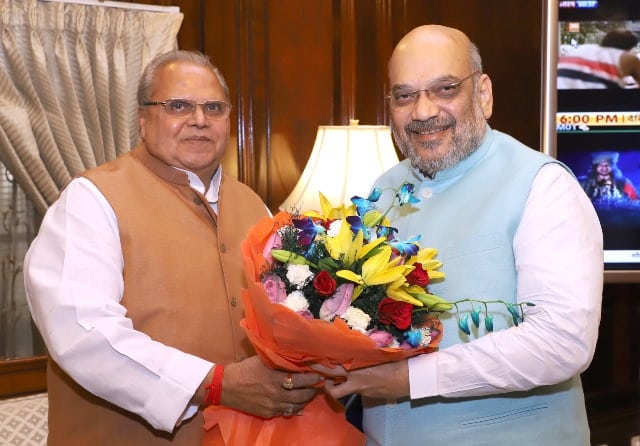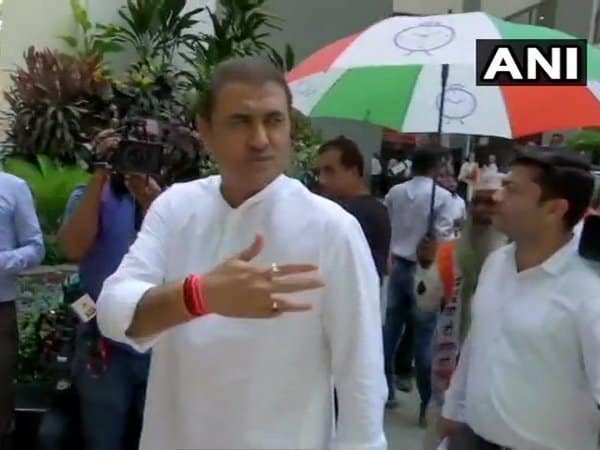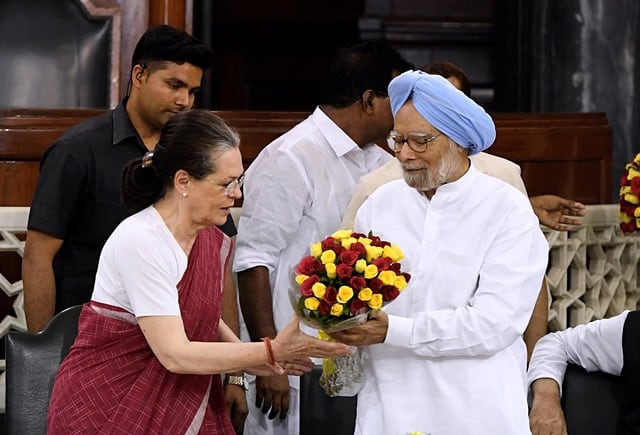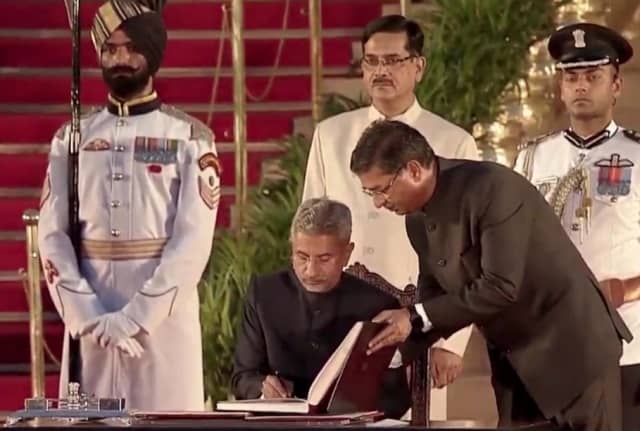As the world faces US-China trade war and looks at a possible limited conflict between Washington and Tehran, Indian diplomacy will require to avoid the minefield
With a massive electoral mandate under his belt, and no strong opposition to thwart him, Prime Minister Narendra Modi is all set to begin his next five-year term on a high.
However, the challenges ahead are daunting. Getting manufacturing up and creating jobs for millions of aspirants remain high on the agenda. Reforms are the other. Without the next generation economic reforms, India’s growth story will remain stunted. A robust economy which attracts foreign investors is a must for a nation’s global profile. For that, Modi and his team will have to take forward the reform agenda, clean up the banking system and the labour laws to attract more investments. Unless the economy gears up and India performs well, the country’s hopes of becoming a major player in the world stage will remain a pipe dream.
Foreign policy will require careful handling. Former foreign secretary Subrahmanyam Jaishankar is the best man to lead the team at this critical juncture. He knows exactly what the challenges are, is completely in sync with both the Prime Minister and Ajit Doval, the National Security Advisor. He is familiar with US politics and was ambassador to China and knows the system well there. He is a Russian language speaker. Also served both in Japan and Singapore. What is more Jaishankar is also familiar with trade negotiations.
Neighbourhood First is a good policy which will be carried forward this time around. It is fine to have an alternative to SAARC with the BIMSTEC grouping. But Delhi should also give some thought to end its boycott. India cannot indefinitely stop SAARC summits. It is also time to accept that China will pour in funds into South Asia and not get into a panic about encirclement. Instead, Delhi needs to focus on forging closer political ties with its neighbours and build stakes across South Asia, so that leaders of smaller countries will think twice before upsetting the applecart. India should take a leaf out of its own experience in Afghanistan and try to win hearts and minds in the neighbourhood. Modi will be travelling to the Maldives later this month. The challenge is handling US, China and Iran at this critical juncture.
A trade war between the US and China is casting a long shadow over the world economy. Rising tensions between Iran and US, which may eventually lead to a military confrontation, will hit India hard. Oil prices are holding for now, but could rise steeply in case of even a limited war. With US sanctions on Iran now ironclad with no exceptions, Indian diplomacy will need to be extremely nimble to avoid the minefields.
The big question in Modi’s second term would be whether India will move decisively to the US camp or remain engaged with all sides and work towards a bi polar world. Pressure is on not just from the US, but a large section of the Indian establishment, to get into the US sphere of influence. The pro-US lobby in India believe that being on the side of the only Super Power will open doors for India, including a permanent seat in an expanded UN Security Council. It is a win win situation for India as it also falls in line with India’s strategic interests to checkmate China’s rising political, economic and military might in Asia.
Delhi has to also deal with a troublesome Pakistan, and ensure the backing of major powers for its action against Islamabad if necessary. Luckily for India, Pakistan’s image as a backer of terror outfits is known to the world. All this falls into place if India aligns more deeply with the US, according to those who believe that Delhi must for its own strategic interests move closer to Washington.
These sections believe that Delhi lost out in the early days after independence by remaining aloof from the US. Nations like Singapore, Thailand, the Philippines zoomed ahead economically and were referred to as the Asian Tigers. Despite its relative decline, US remains and way ahead of other countries and will remain in the top slot. It is the world’s dominant economy, its cutting edge technology and its financial markets remain strong.
It is a win win situation for both countries as there is rare consensus between squabbling Republicans and Democrats that India and US need to forge closer ties to contain China’s ambitions to replace the US as the world’s only super power by 2050. A helping hand from America will help India become a global power much faster.
They point to how the US helped to ensure that China withdraw the technical hold on Masood Azhar being designated a global terrorist. America took much of the credit for turning China around on Azhar. But France and Britain also played a role. There are no free lunches and the US will extract a price for its help. The pressure is already on over Iran. Many believe that India cannot continuously walk the tightrope. It will have to make a choice, especially with a President like Donald Trump at the helm. The pro America lobby want say India cannot play both sides any longer. It needs to make a choice and become an almost but not quite a NATO partner.
Yet there are bilateral problems arising from Donald Trump’s America First policy, which see’s every concession given by the US in the past as a mistake. On Thursday, US announced that
India will lose access to preferential trade terms with the U.S. under the latter’s Generalized System of Preferences (GSP) program. This will pinch India, and the differences need to be ironed out. Despite these hiccups, which the US is having with most countries
Unfortunately for India, countries like Russia and Iran regarded as enemy nations by the US, are New Delhi’s friends and traditional allies. Indian and US interests do not match and India cannot afford to toe the US line when it goes against its strategic interests. Modi must continue to carefully balance ties with US with India’s core interests like relations with Russia and Iran. Just because Trump wants to bring Iran to its knees and push Tehran to rework the nuclear deal, India and other countries have to suffer.
Take India’s problems arising from Trump’s decision to slap sanctions on countries buying Iranian oil. India’s ties with Iran go beyond oil. It has always had civilisational links and worked together during the Taliban rule to prop up the Northern Alliance. The Chabahar port in Iran is of strategic importance to India as it opens a lifeline to both Afghanistan and Central Asian countries for Indian products. Delhi’s involvement in the Chabahar Port was to by-pass Pakistan as that country does not allow Indian goods to pass through its territory. Political relations with Iran will be affected if India stops importing oil from Iran because of US sanctions. India’s exports through Chabahar will naturally then take a hit. Trump had slapped sanctions on Iran last November but gave a six month waiver to eight countries, including India. That period has now ended.
Iran’s foreign minister Mohammad Javad Zarif was in India bang in the middle of elections to discuss the sanctions with Sushma Swaraj. He was told that the new government would have to deal with it. Due to banking sanctions imposed by the US for doing business with Iran, India and Iran have been carrying out trade through a rupee account in UCO Bank which has limited exposure in the US. This was done earlier too when Iran was under sanctions. India deposits payments in rupees in Iran’s account for the oil purchased and that is then used to make payments to Indian exporters of goods to Iran. Modi needs to play ball with both Iran and US and come up a winner.
The advantage is that the US is as keen to woo India. Washington would be in a better position to balance out China in Asia with India on its side. India also has a huge market for American companies. In the last decade or so India and bought arms worth $15 billion from the US and more is on the cards. Washington would certainly not want India to join the loose alliance of China, Russia and Iran that is taking shape. So it is not as if India does not have leverage.
So far Narendra Modi has played his cards well. In his first term Narendra Modi was able to befriend the mercurial Donald Trump, sign two of the foundation pacts needed to put into force the India-US defence co-operation agreement, signed earlier during the Manmohan Singh regime and take forward the partnership with the US. Yet he went against the US in closing the purchase of five billion dollar S-400 Triumf surface to air missile defence system with Russian President Vladimir Putin, despite threat of sanctions.
The first delivery of the missile system is slated for 2020. Sanction will likely kick in then. In the meantime the US is hoping to get Delhi to opt for a US built missile shield. By all accounts Modi will continue to play ball with every important country and not lean over completely to America. The Prime Minister is aware of Russia’s crucial support for the Indian position in the past, when US backed Pakistan to the hilt. Last time when the two met at their annual summit in Delhi, Modi made it plain “India gives the highest priority to ties with Russia, in fact in a changing world, our ties have become more important.” The Prime Minister will be meeting. Russian President Vladimir Putin, China’s President Xi Jinping on the sidelines of the Shanghai Co operation Organisation meeting in n Kyrgyztan’s capital Bishkek on June 13-14. Pakistan’s Imran Khan would also be attending.
India’s neighbours Pakistan and China will continue to occupy the government. The absence of Pakistan‘s Prime Minister Imran Khan for Modi’s inauguration is a stark reminder of the bad blood between the two nuclear armed neighbours. After Pulwama, the Balakot strike, Pakistan’s counter show of strength, and the high decibel rhetoric unleashed by Modi against Pakistan, a cooling off period is necessary. This does not however mean that Modi will not have another shot at peace making with Pakistan. Modi is likely to try again. Perhaps in Bishkek it will be only a handshake, but the PM who loves to be feted internationally, will make an attempt to go down in history as a peace maker.
Imran Khan has said earlier that Narendra Modi would be in a better position to make peace with Pakistan than the Congress. He is bang on. The BJP would take to the streets to oppose any deal made by the Congress with Pakistan. Remember the BJP opposition to the Indo-US civil nuclear deal signed by Manmohan Singh in 2006? Conventional wisdom is that only a hardline BJP government in India and a military dictatorship in Pakistan can strike a peace deal. Prime Minister Imran Khan is making the right noises. It is also known that he is backed by the military. In fact the army wanted Nawaz Sharif out and the PTI in. Army despite its public statements is not comfortable with peace moves. Much will depend on whether the financial action task force (FATF) which has placed Pakistan in the grey zone moves it to the black list. That would make it harder for international financial institutions to lend money to Pakistan and further damage its economy. If that happens the army will not stand in the way of talks with India.
Engaging Pakistan without a change of policy in Kashmir is unlikely to work. Mod must overhaul the current mindless Kashmir policy. But with Amit Shah as home minister, a strong arm policy in Kashmir is likely to continue.
Perhaps even more important than Pakistan will be Delhi’s ties with China. India and China are rivals in Asia and have a complex relationship. Modi obviously wants to continue mending fences with China. Reports of an informal Wuhan type summit between Modi and Xi, in Varanasi, is being talked of for later this year. Getting the equation right with China is pivotal. Chinese companies are already doing good business in India and will be looking for more as America dries up as a market. India can use Chinese expertise for its infrastructure and take a call on the Belt and Road Initiative and work together when it suits India’s interests. Political ties with China will also help in bargaining with the developed world at international forums. BRICS and RIS groupings are already in place. Delhi needs to make the best of these outfits to push India’s agenda on both development and terrorism. Keeping one toe firmly on the US camp helps to keep the Chinese unsettled. All this is easier said than done, but in a changing world India needs to keep a foothold on all camps and make sure its strategic interests are not compromised.
]]>
